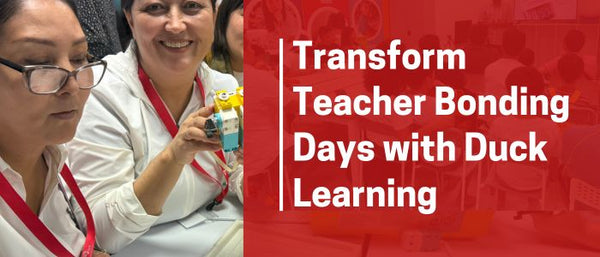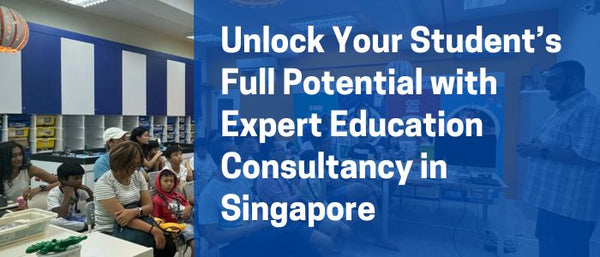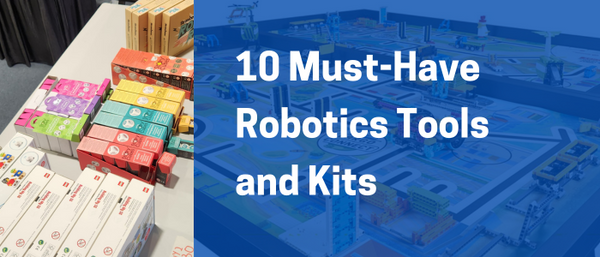Code for Fun: Sparking AI Learning with Pictoblox in Singapore
Table of Contents
Introduction
- The Importance of Equipping Young Minds with Future Technologies
- Singapore’s Initiatives in Coding and AI Education
Code for Fun (CFF) Enrichment Programme
- Overview of the Programme
- Hands-on Exposure to Coding and Computational Thinking
- Utilising Software and Hardware for Practical Learning
Scratch Programming Language
- Introduction to Scratch for Beginners
- Developing Logical Thinking and Problem-Solving Skills
- From Simple Animations to Complex AI Projects
Introducing Pictoblox
- Simplifying Coding with Pictoblox
- Supporting Beginners and Advanced Learners with Block-Based and Python Coding
- Innovation with Interactive Games, Robots, and AI Systems
AI’s Growing Role in Singapore’s Education System
- Integration of AI through the EdTech Masterplan
- AI-Powered Learning Feedback Assistants in Schools
- Enhancing Student Learning in Mathematics and English
Personalised Learning with AI Tools
- The Adaptive Learning System (ALS)
- Personalised Learning Journeys in Mathematics and Geography
- Authoring Copilot for Teachers: Simplifying Educational Content Creation
Benefits and Challenges of AI Tools in Education
- The Role of Singapore Student Learning Space (SLS)
- Instant Feedback for Students and Teacher Engagement
- The Need for Human Oversight
A Future of Innovation
- Empowering Students to Become Creators with Technology
- Preparing the Next Generation for the Digital Age
In today’s rapidly evolving digital landscape, equipping young minds with the knowledge and skills to navigate future technologies is essential. Recognising this need, Singapore’s Ministry of Education (MOE) has introduced several groundbreaking initiatives to teach students the fundamentals of coding and artificial intelligence (AI). One of the standout programmes is the Code for Fun (CFF) Enrichment Programme, a unique initiative blending play with learning to make coding accessible and engaging for children of all ages.
Since its launch in 2014, the Code for Fun programme, offered by MOE in partnership with IMDA (Infocomm Media Development Authority), has provided primary and secondary school students with hands-on exposure to computational thinking and coding. It utilises a combination of software (visual and syntax-based programming languages) and hardware (robotics and microcontrollers), giving students practical experience in coding concepts. Through this innovative approach, children explore the world of automation, robotics, and artificial intelligence while having fun.
At the heart of the programme, students work with the Scratch programming language, a globally popular block-based tool designed for beginner coders. With Scratch, students learn to think logically, solve problems creatively, and develop projects that range from simple animations to more complex AI and Machine Learning (ML) systems. Through hands-on projects, they gain the skills to automate robots, create smart home systems, and even design their own virtual assistants, bridging the gap between imagination and real-world technology.
Introducing Pictoblox: Empowering Young Innovators
Adding to the excitement of Code for Fun is Pictoblox, an intuitive platform that simplifies coding while introducing more advanced AI and ML concepts. Much like Scratch, Pictoblox provides a user-friendly, block-based interface, making it perfect for beginners. However, it also caters to advanced learners by supporting Python, allowing them to explore text-based coding as they develop their skills.
With Pictoblox, students can create interactive games that respond to user input, programme robots to complete complex tasks or design AI systems that recognise patterns and make predictions. The platform offers endless possibilities for innovation, nurturing a new generation of tech-savvy creators who are prepared for the demands of the future job market.
AI’s Growing Role in Singapore’s Education System
Singapore’s Ministry of Education has gone a step further by integrating artificial intelligence into the education system through its EdTech Masterplan, launched in September 2023. This plan aims to personalise learning experiences, making education more adaptive, efficient, and tailored to the unique needs of each student.
As of June 2024, several AI-powered tools are actively in use by students and teachers across Singapore. Among them are three “learning feedback assistants” designed to help students in subjects like mathematics, English, and other short-answer questions. These systems provide instant feedback, guiding students to correct mistakes and improve their understanding. For example, the maths assistant offers step-by-step corrections, while the English assistant focuses on grammar, spelling, and sentence structure.
Personalised Learning with AI Tools
Another powerful tool in this ecosystem is the Adaptive Learning System (ALS), which allows students to learn at their own pace. The system provides personalised recommendations based on their responses, creating a customised learning journey. Currently, ALS is available for subjects such as mathematics at the upper primary level and geography at the upper secondary level, helping students master these subjects with greater efficiency.
In June 2024, MOE also introduced the Authoring Copilot, a tool that assists teachers in creating lesson plans, quizzes, and activities. By generating educational content based on the teacher’s input about learning objectives, the tool reduces the time teachers spend on planning, allowing them to focus more on engaging with students.
All of these AI tools are integrated into the Singapore Student Learning Space (SLS), an online portal that provides educational resources and real-time feedback to students. Teachers see significant benefits from these tools, particularly in how they enable immediate feedback and inspire students to take more initiative in their learning. However, teachers emphasise that human oversight remains crucial, as AI tools may occasionally make errors that require manual correction.
A Future of Innovation
By embracing AI and integrating coding and computational thinking into its national curriculum, Singapore is paving the way for a future where students are not just consumers of technology but active creators. Programmes like Code for Fun, powered by platforms like Pictoblox, ensure that the next generation is well-equipped to harness the power of technology, shaping a future where innovation knows no bounds.
With initiatives like the EdTech Masterplan and programmes that expose students to AI at an early age, Singapore is setting a global example of how to prepare young minds for the opportunities and challenges of the digital age. As AI continues to revolutionise industries worldwide, the skills students learn today will enable them to become the innovators, thinkers, and leaders of tomorrow.
Conclusion
This approach to education, exemplified by initiatives like the Code for Fun programme and the EdTech Masterplan, is not only preparing students for the digital future but also inspiring a culture of creativity and innovation. By integrating coding, AI, and computational thinking into its curriculum, Singapore is empowering the next generation to become not just passive users of technology but active creators and innovators. With platforms like Pictoblox making complex concepts accessible and engaging, students are gaining the skills and confidence needed to thrive in an AI-driven world. As the country continues to embrace cutting-edge educational tools, it stands as a global leader, showing how technology can be harnessed to shape a brighter future for all.



